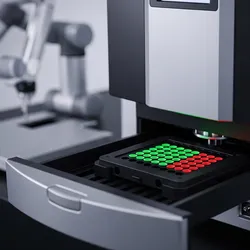
CURRENT ISSUE | VOLUME 5 - ISSUE 6 | July/August 2010
COVER STORY
Global Management
Establishing a common culture among far-flund research facilities
Laboratory Technology
Product Focus
How it Works
Lab Product
Leadership and Staffing
Business Management
Lab Design and Furnishings
Research-Specific Labs

Jonathan V. Sweedler is a busy man: he runs a large research group in the Department of Chemistry at the University of Illinois at Urbana-Champaign and is the principal investigator for the UIUC Center for Neuroproteomics on Cell-Cell Signaling and the director of the Roy J. Carver Biotechnology Center.














